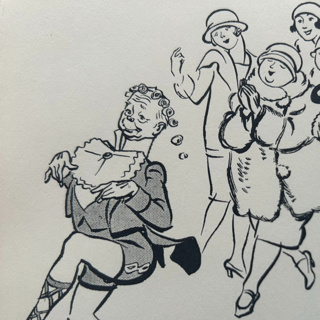Om avsnittet
We pick up the story just after the defeat of the 1926 British General Strike. It was a bad time for the unions, with strikes accounting for only just over a fifth as many working days lost in the whole of the next ten years as they had in the single year of 1926. Meanwhile, the Labour Party seemed to be cosying up to some strange people, specifically Lord Londonderry, Tory and coal mine owner, who became a close friend of the Labour leader Ramsay MacDonald. It was also a bad time for the progressive movement, with the Baldwin government bringing in some fairly oppressive legislation, especially against unions and the Labour Party. There were, however, exceptions, in particular the introduction of universal suffrage for all adults (21 years and over) irrespective of sex (oddly enough brought in by a particularly tough Home Secretary, ‘Jix’ (William-Joynson Hix). Neville Chamberlain also brought in some new social legislation, reducing the retirement age for contributory pensions and extending benefits to widows and children of workers who died. The effect was small but welcome. This was also the time when Churchill was riding high and increasingly in rivalry with that same Chamberlain, as they positioned themselves as potential successors to Baldwin for when he eventually retired. What Churchill didn’t seem to realise, however, was that though he’d won most Tories round to his return to their party, too few of them trusted him enough to accept him as leader . The heir apparent, he would discover, wasn’t him, it was Chamberlain. Illustration: Jix (William-Joynson Hix) who brought in universal suffrage despite being a hardline Conservative Home Secretary, leading a dancing group of flappers (young fashionable women enfranchised by the measure), as seen by the cartoonist David Low in a detail of a 1927 cartoon. Music: Bach Partita #2c by J Bu licensed under an Attribution-NonCommercial-No Derivatives (aka Music Sharing) 3.0 International License

